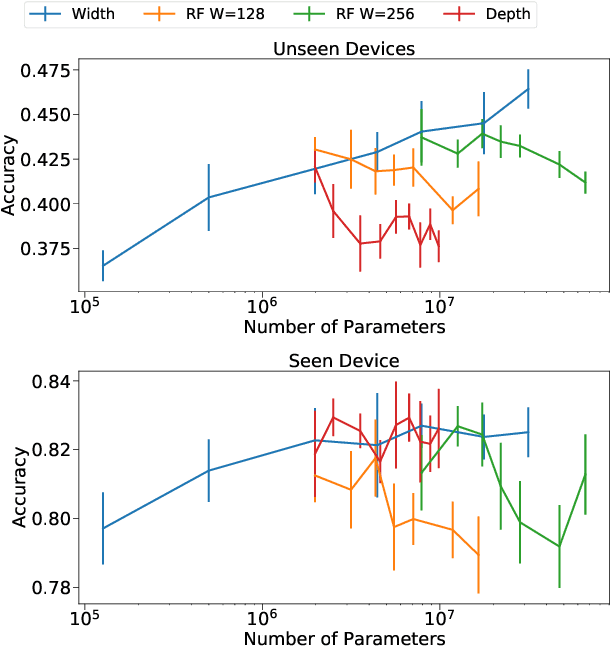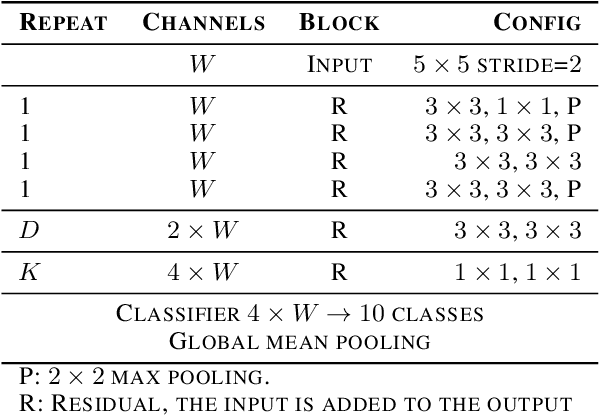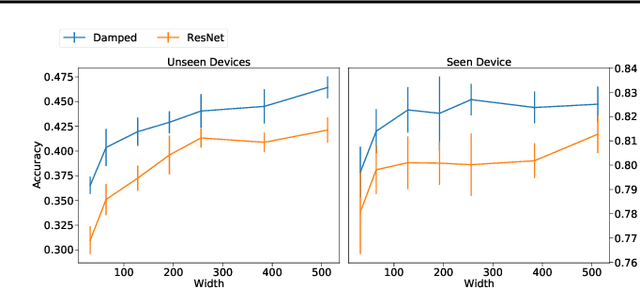Over-Parameterization and Generalization in Audio Classification
Paper and Code
Jul 19, 2021



Convolutional Neural Networks (CNNs) have been dominating classification tasks in various domains, such as machine vision, machine listening, and natural language processing. In machine listening, while generally exhibiting very good generalization capabilities, CNNs are sensitive to the specific audio recording device used, which has been recognized as a substantial problem in the acoustic scene classification (DCASE) community. In this study, we investigate the relationship between over-parameterization of acoustic scene classification models, and their resulting generalization abilities. Specifically, we test scaling CNNs in width and depth, under different conditions. Our results indicate that increasing width improves generalization to unseen devices, even without an increase in the number of parameters.
 Add to Chrome
Add to Chrome Add to Firefox
Add to Firefox Add to Edge
Add to Edge